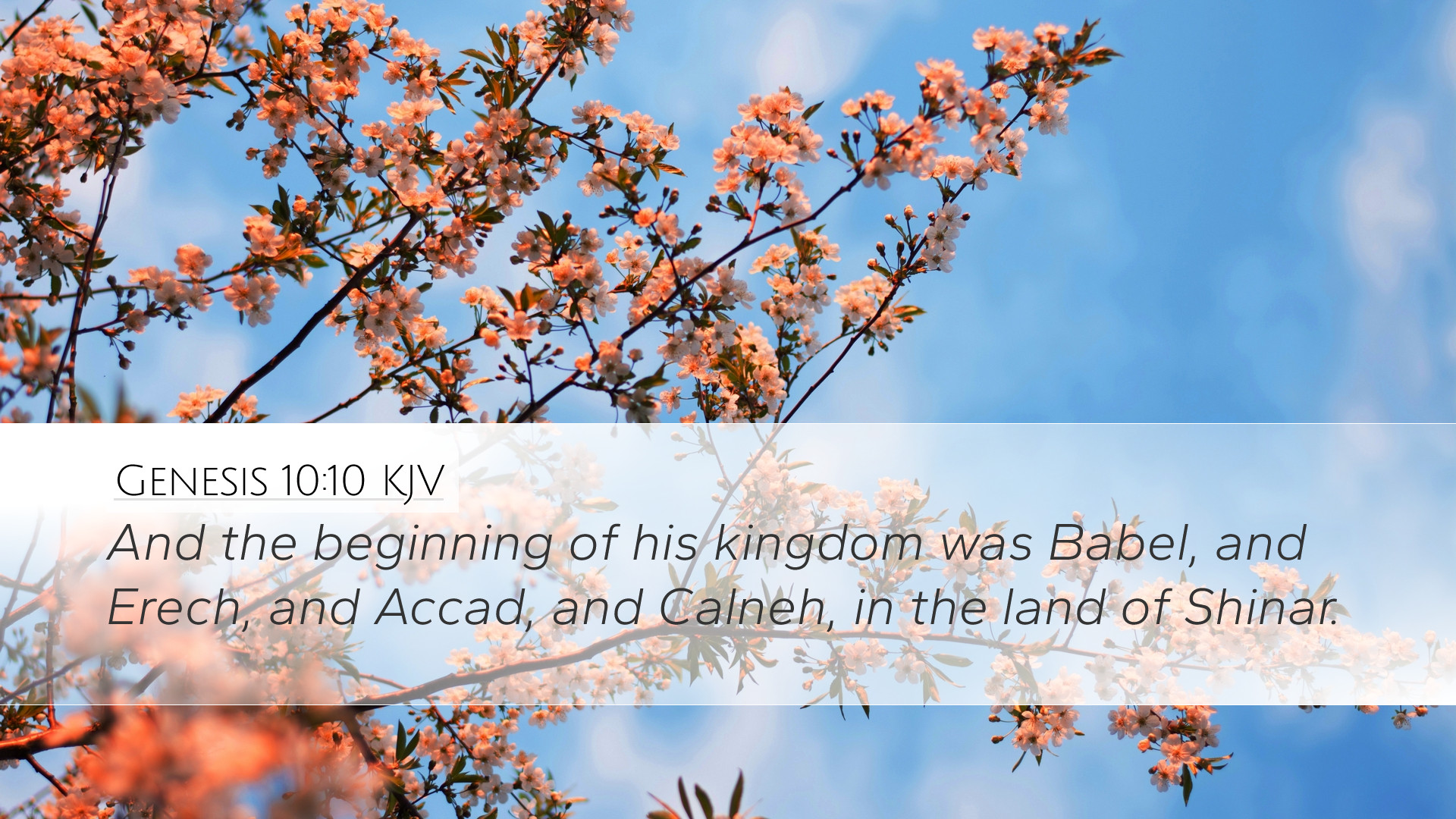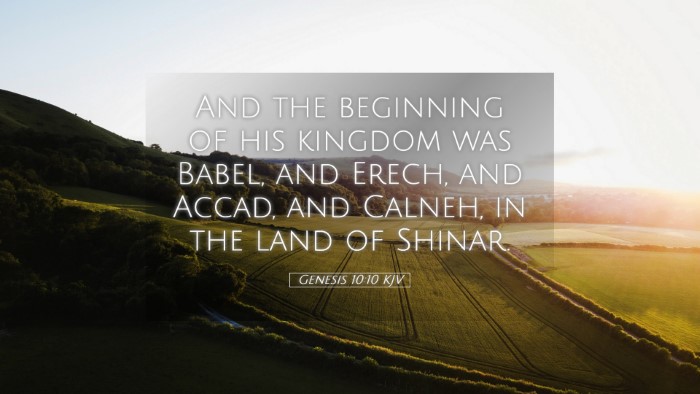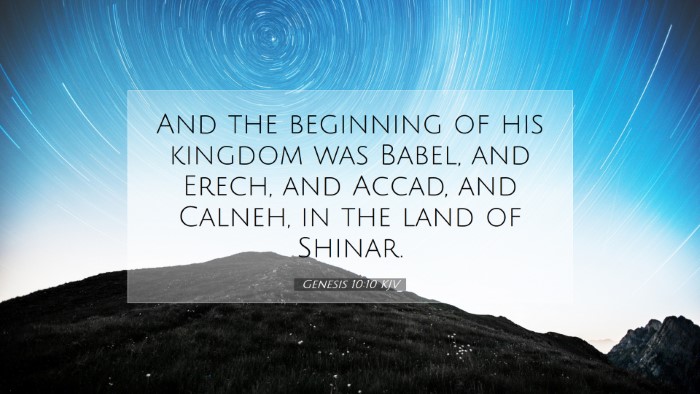Commentary on Genesis 10:10
Genesis 10:10: "And the beginning of his kingdom was Babel, and Erech, and Accad, and Calneh, in the land of Shinar."
This verse serves as a pivotal point in the genealogical and historical narratives of the Book of Genesis. In this commentary, we explore the multifaceted implications of this verse, drawing insights from Matthew Henry, Albert Barnes, and Adam Clarke.
Historical Context
The verse highlights the establishment of cities in the land of Shinar, which is traditionally understood to be located in Mesopotamia, a key region in biblical history. Henry notes that these cities signify the rise of civilization post-flood, marking a departure from the agrarian lifestyle of Noah's descendants.
Significance of Babel
-
Confusion of Languages:
Henry comments that Babel is most prominently known as the site of the Tower of Babel, where humanity's attempt to reach the heavens led to divine intervention and the confusion of languages. This act of God serves as a poignant reminder of human limitations and the dangers of collective pride.
-
Cultural Hub:
Barnes elaborates that Babel represents the beginning of organized society, commerce, and advanced civilization. It is not just a geographical location but symbolizes the foundational structures of human society that oppose divine order.
Insights on Cities of the Plain
-
Erech, Accad, Calneh:
Each city mentioned—Erech, Accad, and Calneh—carries significance. Adam Clarke suggests that these cities were instrumental in the development of various aspects of civilization, including architecture, governance, and trade. Their construction illustrates humanity's endeavor to build a society consistent with their aspirations while often diverging from God's will.
-
Geographical Importance:
These cities were part of a larger network of urban developments that facilitated the spread of culture and technology. As such, they represent not only human achievement but also the potential for moral and spiritual corruption.
Theological Reflections
The beginning of Nimrod’s kingdom, as inferred from the subsequent verses, is integral to understanding the development of human authority and governance. Henry emphasizes the importance of recognizing that while kingdoms may rise, they exist within the sovereign plan of God.
Nimrod: The Mighty Hunter
While Genesis 10:10 does not explicitly mention Nimrod, the subsequent verses lead into his introduction as a figure of architectural and military prowess. Clarke notes that Nimrod’s legacy—full of both ambition and rebellion—mirrors humanity's perennial struggle between divine commandments and personal ambition.
The Council of Nations
Furthermore, the gathering of nations in Babel illustrates a collective ambition that often leads to opposition against God. Barnes points out that this collective effort to build a kingdom independent of divine authority ultimately demonstrates the futility of human pride.
Application for Pastors and Scholars
This verse serves as a reminder that human efforts, no matter how grand, must be aligned with God’s purposes. Pastors can draw from this text to illustrate the need for humility in leadership and the importance of aligning communal aspirations with divine will.
Implications for Contemporary Society
In today’s context, this commentary beckons both church leaders and laypeople to reflect on the nature of their ambitions. Are they pursuing goals in accordance with God’s plan, or are they resembling the builders of Babel, seeking self-glorification at the expense of divine harmony?
Conclusion
Genesis 10:10 unveils foundational themes in biblical theology: the interplay between human ambition, divine sovereignty, and the consequences of collective rebellion. The insights gleaned from the historical context, the identity of cities, and the theological implications serve as crucial frameworks for understanding the development of human civilization in the light of Scripture.
By engaging with this verse, readers—whether pastors, students, theologians, or Bible scholars—are invited to consider the enduring relevance of biblical narratives in their lives and ministries, leading to a deeper understanding of what it means to be kingdom builders in alignment with God’s ultimate design.


